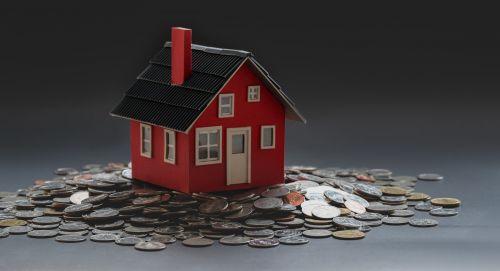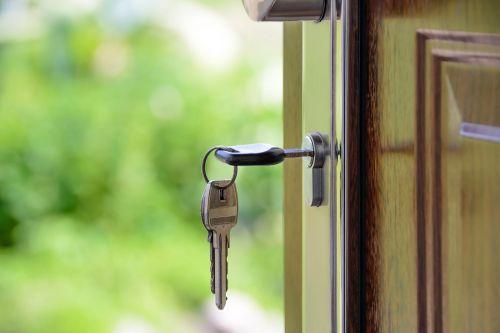After months or even years of preparation, you’re finally ready to become a homeowner! You’ve saved up a solid down payment, you know exactly where you want to move and you’ve even enlisted the help of a real estate agent to guide you through the process. In short, you think you’ve covered all the bases. But is it really the case?
Whether it’s your first purchase or you’re already a property owner, buying a new property is a lengthy process that can sometimes feel overwhelming. You might even be tempted to cut corners to make things easier and speed up the process.
To help you out, we’ve compiled a list of 10 common mistakes to avoid, ensuring that you have the best possible home-buying experience.

1. Not getting a mortgage pre-approval
Getting a mortgage pre-approval is one of the best ways to kick off the home-buying process, as it helps you understand your maximum borrowing capacity. It’s also a sign of seriousness in the real estate market, and many agents require this document before they show you properties.
When it’s time to close the deal, having a pre-approval can help you stand out to the seller, especially if there are multiple buyers vying for the same property. This ensures you’re always making informed decisions.
2. Not making a list of your needs
Before you even begin your property search, take the time to create a list of criteria that are essential to you in your future home. For example, you might consider a large backyard essential so your children can play outside.
This list of non-negotiable needs will help guide your real estate agent’s search, allowing them to focus on properties that meet your needs and avoid unnecessary showings.
Additionally, creating a list of "desired" but not essential features can help you make decisions between properties you visit. For instance, you might prefer a house with a pool. If all the properties you’ve seen have large yards, but only one has a pool, having this feature on your list could make it easier to choose.
3. Not asking enough questions
If something about a property is leaving you uncertain, don’t rely on luck to clear up your doubts! Always feel free to ask questions, whether it’s to the seller or to the real estate professionals assisting you. It’s always better to ask too many questions than not enough!
By asking the right questions, you’re less likely to face any unpleasant surprises if you decide to purchase the property. It also gives you the chance to clarify any concerns and make sure everyone is on the same page.

4. Being guided by emotions
Bright, spacious, affordable… Is the house you’re visiting a perfect fit that meets all your needs? Be cautious not to let your emotions take control!
It’s natural to get excited when you fall in love with a property and want to move forward with the purchase quickly. However, even if everything seems perfect, your dream home could quickly turn into a nightmare if you're not careful.
Take a step back and ensure you follow all the necessary steps before finalizing the purchase. For instance, hiring a building inspector to check the property’s condition and uncover any potential issues is crucial.
On the flip side, too much enthusiasm could also work against you in negotiations. If the seller senses your excitement, they might try to leverage your emotions to sway your decision.
5. Not reading all the documents before finalizing the sale
Think reading through documents is a waste of time? Think again. It’s crucial to thoroughly review the terms of the contracts you sign!
Buying a home is a significant decision, and you should take the time to read everything, even if it feels tedious or less exciting.
Make sure you understand all the details involved in becoming a homeowner to avoid any unpleasant surprises. If you don’t want to read everything yourself, ask the experts you're working with to explain the documents and clarify their meaning.

6. Not visiting the neighbourhood where you're buying the property
You’ve likely spent a lot of time considering the house itself, but have you thought about the neighbourhood? While it’s often overlooked, the neighbourhood can have a huge impact on your decision to buy.
Do you think your dream home is in a peaceful area? A simple visit to the property won’t always confirm that. Make sure to research any planned developments in the area (future construction, municipal projects, etc.) and visit the neighbourhood multiple times to get a true feel for it.
Ideally, visit at different times of day and on various days of the week. This will give you a more comprehensive view. A neighbourhood that seems quiet on a Monday morning could turn out to be noisy on a Friday night!
7. Not inquiring about available subsidies
It’s no secret that buying a property is a major investment. However, you could receive a financial boost through municipal, provincial, or federal assistance, which can help increase your down payment or even provide tax credits.
Make sure to check with the relevant institutions. For instance, if you're a first-time homebuyer, you might be eligible for programs like the Government of Canada's First-Time Home Buyer Incentive.
8. Waiting too long before making an offer
It’s completely normal to want time to decide after visiting several homes. Rushing into a decision and later regretting it would be a mistake.
However, be cautious not to delay your decision for too long. Waiting too long to submit an offer can result in losing the opportunity, especially in today’s real estate market where demand often exceeds supply.
Keep in mind that the pace of sales can vary greatly depending on the region or city. For example, a house in the city may sell much faster than one in a rural area.

9. Making an offer that's too low
If your offer is too low, there’s a good chance the seller will dismiss it in favour of a higher one. This is especially common in a market where overbidding is widespread.
To ensure your offer is competitive and reflects a fair price for the property, listen to the advice of your real estate agent. As the expert in the field, they are the best person to guide you through the offer process and help you make an informed decision.
10. Underestimating the costs of becoming a homeowner
Buying a home comes with more expenses than just the property price. Several additional costs will arise both before and after the purchase. These can include inspection fees, notary fees, moving costs, utility connection fees, potential renovations, and new furniture, among others.
Simply having enough for the down payment isn’t sufficient!
Make sure to plan your budget with these various costs in mind, as they can quickly add up. Your final bill could easily reach several thousand dollars.
Are you looking to purchase a property?
XpertSource.com can help you in your efforts to find a real estate broker. By telling us about your project, we will refer you to top-rated experts, free of charge! Simply fill out the form (it only takes 2 minutes) and you will be put in contact with the right experts.

